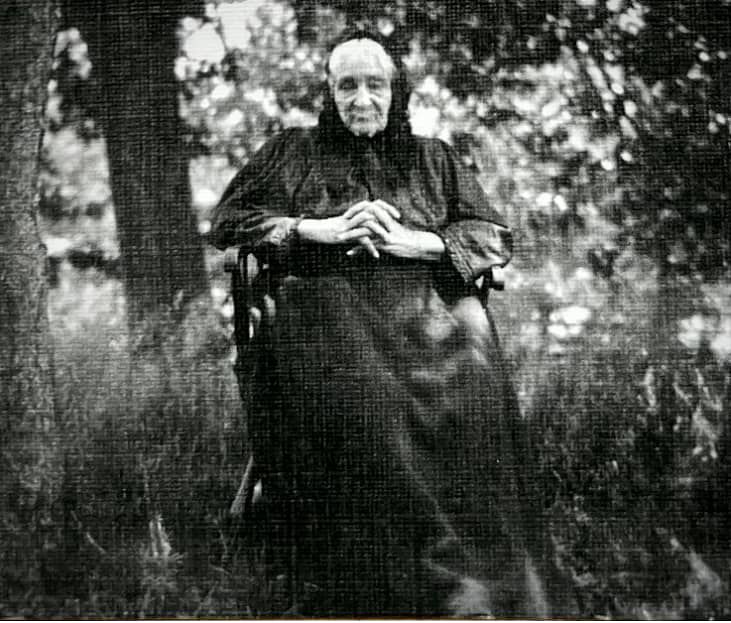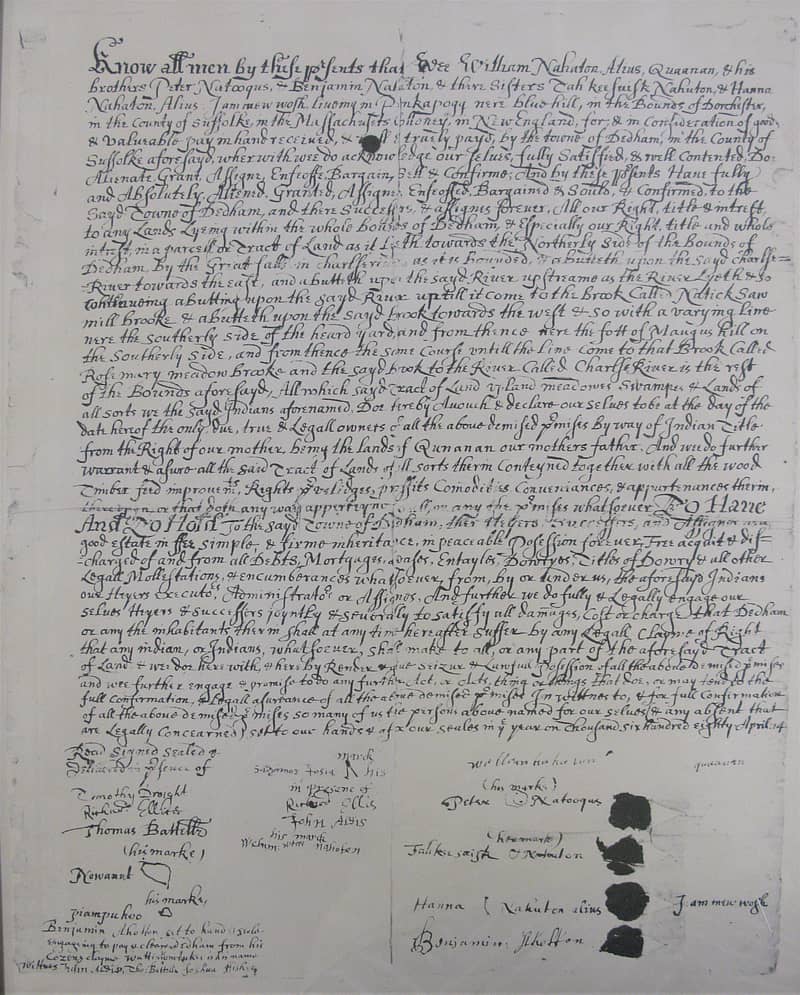
Abolitionist: somebody who advocated for the abolition, or legal end, of enslavement
Daughters of the American Revolution: a genealogical organization founded in 1890 for female descendants of Revolutionary War veterans.
Actual daughters of the revolution: A member of the Daughters of the American Revolution whose father fought in the American Revolution.
Narragansett: An Indigenous nation whose traditional territory is in what is now Rhode Island. During the eighteenth and nineteenth centuries many Narragansett wound up in Massachusett due to enslavement, indentured servitude, or in search of paid work. Learn more about the contemporary Narragansett tribe
Penobscot: An Indigenous whose traditional territory stretches from what is now Maine into Canada. Like the Narragansett, many Penobscot wound up in Massachusetts due to enslavement, indentured servitude, or in search of paid work during the eighteenth and nineteenth centuries. Learn more about the contemporary Penobscot Nation
Eunice Russ Ames Davis was the most famous resident of Dedham during the first decade of the twentieth century. Newspapers throughout North America published her biography often in honor of her birthday during the last decades of the nineteenth century into the first decade of the twentieth century. The articles contained valuable information but often made interesting choices in describing her identity. The papers claimed that she was the oldest living female abolitionist in the United States and emphasized that she was an actual daughter of the revolution. Most newspapers highlighted Eunice Russ Ames Davis’s Narragansett ancestry while ignoring her Penobscot and Black ancestry. Articles celebrated that her father, Prince Ames, fought in the American Revolution and claimed that he was a white man. They ignore that he was likely Penobscot and Black and performed some of his military service while enslaved.
The following transcription is an excerpt of an October 26, 1900, Boston Herald article. It includes a biography of Eunice Russ Ames Davis and a description of her 100th birthday party. The party occurred in Dedham in the home of her granddaughter Mary Howard.

In a cozy little yellow painted cottage at the corner of East and Washington streets lives Dedham’s oldest inhabitant, Mrs. Eunice Russ (Ames) Davis, whose life span today reached that of 100 years.
She is a woman with a unique history being the only surviving member of the Woman’s Anti-Slavery Board of Boston, and the oldest female Abolitionist in the United States.
Her father Prince Ames served during the revolutionary war in the 23d regiment, and for his valiant services at the battle of Bunker Hill received special recognition from Gen. George Washington and the officer under whom he served. He fought at Lexington and Concord also.
Mrs. Davis is the oldest member of the Jamaica Plain Baptist Church, and the only living member charter member. She is a direct descendant of a Narragansett Indian chief.
She holds membership in the Old South chapter, Daughters of the American Revolution, Boston, and is proud of the distinction of having received from the National Society, D.A.R., Washington D.C., a gold souvenir spoon, with her name engraved on the handle, such as are on presented to the actual daughters of the revolution.
Mrs. Davis was born in the South Parish, Andover, Mass., Oct 22, 1800. Her father, Prince Ames was a white man and her mother, Eunice Russ, was a full-blooded Narragansett Indian. Her early life was spent in the town of her birth. When 18 years of age she was married to Robert Amos and went to Lowell to live. In 1825 her husband accidentally drowned in the Merrimac River.
Leaving Lowell she came to Boston, where she made the acquaintance of her second husband, John Davis and they were married in 1834. He died in 1857. She then made her home with one of her sons at Jamaica Plain, remaining with him until she came to reside with her grand-daughter, Mrs. Mary D. Howard of Dedham, some dozen years ago.
Mrs. Davis is the mother of three children all by her first husband. There were Mrs. Dorcas Ann (Amos) Raveleon, George Amos and Charles Bradley Amos. Only the last named is now living. He resides at Jamaica Plain. She has eight grandchildren and two great-grandchildren.
Her family has always been a patriotic one and have ever been ready to raise a hand in the defense of their country. Besides her father, who served in the revolution, her brother Alexander Ames, took part in the war of 1812. Her son, Charles B. Amos, fought in the civil war in the navy. Three nephews were enrolled in the 57th Massachusetts regiment, and two grandsons were in the service in the 42d regiment, which was commanded by Gen. Burrill, who since the war and for a term of years served the people of Boston was street commissioner.
In the times of the civil war Mrs. Davis took an active part in the proceedings attendant to the abolitionist movement. She was intimately acquainted with William Lloyd Garrison.
Upon the walls of the room [of the party] hung a framed print of “The Boston Tea Party,” hand-worked portraits of “Robbie Burns and his Highland” and framed engravings of “Franklin’s Reception at the Court of France in 1778” and “Abraham Lincoln’s Last Reception.” On the mantel stood some old-time vases, and pewter dishes and a Tam o’Shanter pitcher on the shelf. Some of the ancient prints and the much-used family Bible lay upon the center table.
Among [the guests] were many of the leading people of the town, members of the Dedham Historical Society, neighbors, relatives, and the officers and members of the Old South chapter, D.A.R. With one and all the old lady shook hands, expressed pleasures at seeing them, and urged all to come again. She seemed greatly pleased with the attention shown her.
